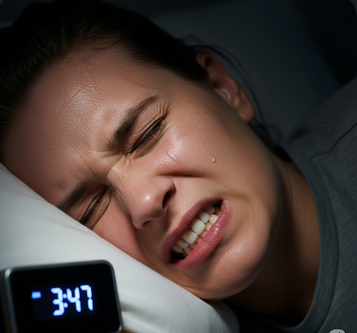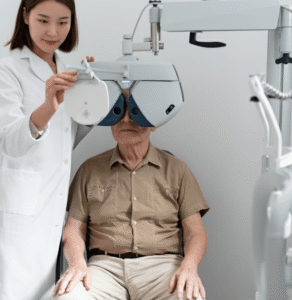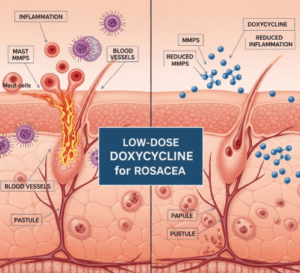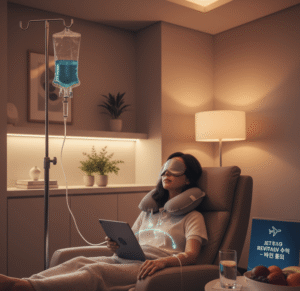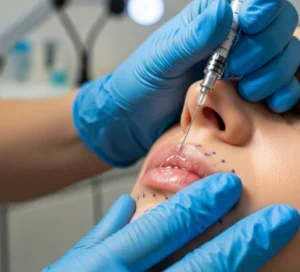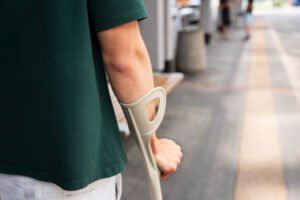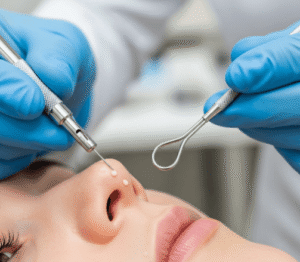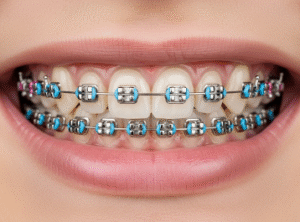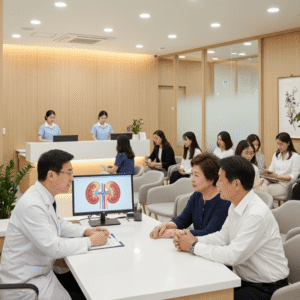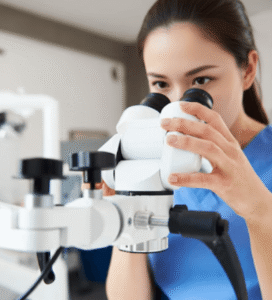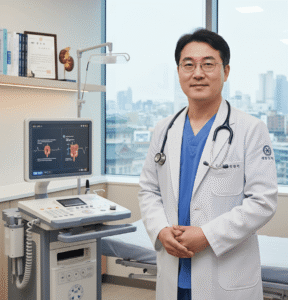Overview
Bruxism is a condition characterized by unconscious grinding, clenching, or gnashing of the teeth, often occurring during sleep but sometimes while awake. It can lead to tooth damage, jaw pain, headaches, and temporomandibular joint (TMJ) disorders.
In South Korea, dental clinics, sleep centers, and specialized TMJ clinics provide comprehensive diagnosis and treatment options for bruxism, including dental appliances, behavioral therapy, and medical interventions to prevent complications.
Key Facts
Highlights:
➡️ Bruxism can be sleep-related (nocturnal) or awake-related (diurnal).
➡️ Stress, anxiety, sleep disorders, and certain medications are common triggers.
➡️ Symptoms may include tooth wear, jaw pain, headaches, and TMJ discomfort.
➡️ Untreated bruxism can lead to tooth fractures, gum recession, and chronic facial pain.
➡️ South Korea provides advanced dental and sleep medicine solutions, including night guards, stress management, and multidisciplinary care.
What is Bruxism?
Bruxism is repetitive jaw-muscle activity involving clenching or grinding of the teeth, which can occur:
- During sleep (sleep bruxism)
- While awake (awake bruxism)
- May be mild or severe, depending on frequency and intensity
- Often occurs unconsciously, making early detection challenging
- Can result in dental, muscular, and neurological complications if untreated
What Symptoms are Related to Bruxism?
Symptoms of bruxism can affect the teeth, jaw, and surrounding muscles:
- Teeth grinding or clenching, sometimes loud enough to wake a partner
- Worn-down, chipped, or fractured teeth
- Jaw or facial pain, particularly in the morning
- Temporomandibular joint (TMJ) discomfort or clicking
- Headaches, especially tension-type headaches
- Increased tooth sensitivity
- Sleep disturbances in severe nocturnal cases
Highlights:
➡️ Bruxism can cause long-term dental and muscular complications if not managed.
➡️ Morning jaw pain or headaches are classic signs of sleep-related bruxism.
What Causes / Possible Causes of Bruxism?
Highlights:
➡️ Stress and Anxiety: The most common trigger, causing subconscious clenching or grinding.
➡️ Sleep Disorders: Obstructive sleep apnea and other sleep disturbances increase the risk.
➡️ Medications: Certain antidepressants, antipsychotics, or stimulants can contribute.
➡️ Lifestyle Factors: Alcohol, caffeine, smoking, and recreational drugs may exacerbate bruxism.
➡️ Dental and Occlusal Factors: Misaligned teeth or bite abnormalities may play a role.
➡️ Neurological Disorders: Conditions like Parkinson’s disease or Huntington’s disease can involve bruxism.
➡️ Mechanism: Bruxism occurs due to hyperactivity of jaw muscles, altered neurological control during sleep, or stress-induced muscle tension, resulting in repetitive teeth grinding or clenching.
When Should I See My Doctor?
Highlights:
➡️ If you notice consistent teeth grinding or jaw clenching, especially if it affects sleep or causes discomfort.
➡️ If you experience jaw pain, headaches, or TMJ dysfunction.
➡️ If dental damage, fractures, or sensitivity occur.
➡️ For early intervention, preventing long-term dental, muscular, and neurological complications.
➡️ Professional evaluation ensures proper diagnosis, differentiation from other oral conditions, and effective treatment planning.
Care and Treatment
Management of bruxism focuses on reducing teeth grinding, protecting dental health, and alleviating symptoms:
Highlights:
➡️ Dental Appliances:
- Night guards or occlusal splints to prevent tooth damage
- Bite adjustments in cases of severe malocclusion
➡️ Stress Management:
- Cognitive-behavioral therapy (CBT)
- Relaxation techniques, meditation, and biofeedback
➡️ Medical Treatment:
- Muscle relaxants for severe jaw tension
- Medications for underlying anxiety or sleep disorders
➡️ Lifestyle Modifications:
- Avoiding alcohol, caffeine, and stimulants before sleep
- Proper sleep hygiene and routine
➡️ Physical Therapy:
- Jaw exercises and massage to relieve muscle tension
- TMJ-focused therapies for pain reduction
➡️ Monitoring: Regular dental checkups to detect early wear, fractures, or gum recession.
Treatment Options in Korea
South Korea provides comprehensive care for bruxism:
Highlights:
➡️ Dental Clinics: Custom night guards, bite adjustments, and restorative dental care.
➡️ Sleep Centers: Evaluation for sleep bruxism and sleep apnea with polysomnography.
➡️ Stress and Behavioral Therapy: Access to psychologists or behavioral therapists for stress-related bruxism.
➡️ Physical Therapy Centers: TMJ-focused rehabilitation and jaw exercises.
➡️ Multidisciplinary Approach: Collaboration among dentists, neurologists, and sleep specialists for holistic management.
➡️ Advanced Imaging: Dental scans and jaw imaging to assess damage and guide treatment.
➡️ Medical Tourism Support: Multilingual consultations, custom appliance fabrication, and follow-up care for international patients.

